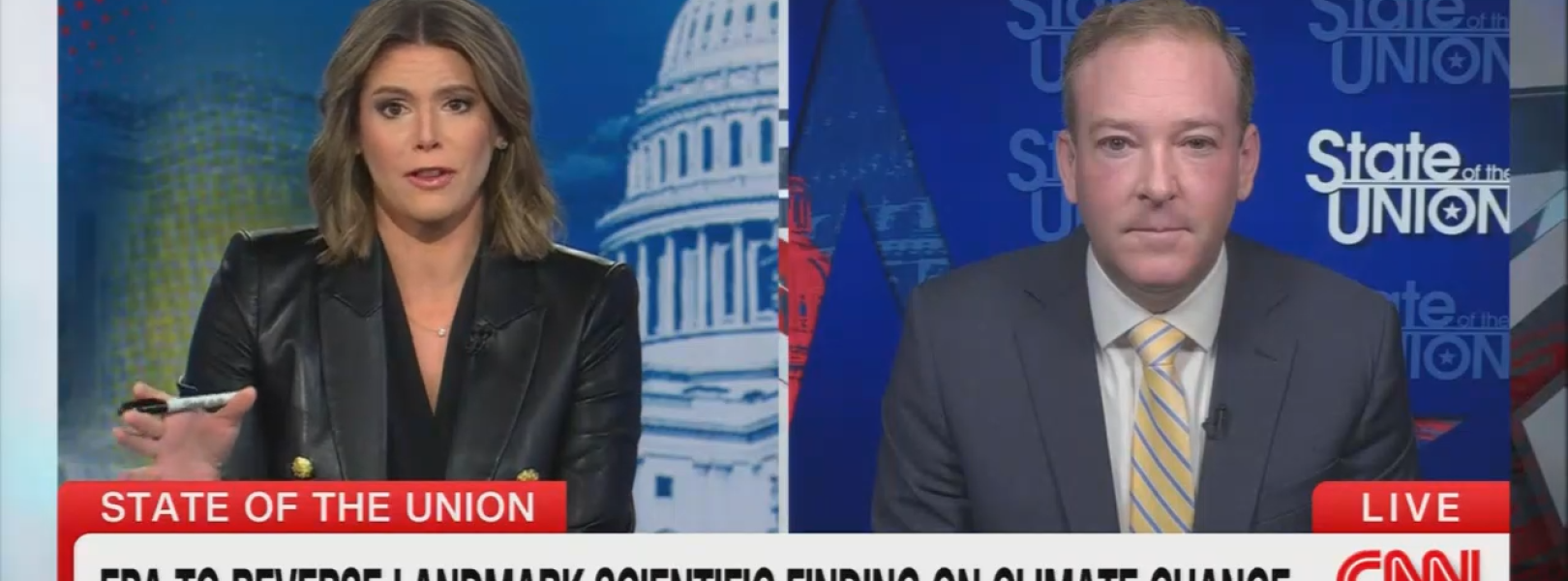The Trump administration’s repeal of the Environmental Protection Agency’s endangerment finding marks one of the most consequential climate and environmental rollbacks in modern U.S. history. In the aftermath of the announcement, CNN aired interviews with EPA Administrator Lee Zeldin and Energy Secretary Chris Wright, which are among the only major network appearances by either official since the repeal. Zeldin and Wright have seldom appeared on non-Fox outlets; their recent CNN interviews presented the network with rare opportunities to question senior officials directly about a coordinated policy campaign that threatens to undermine decades of climate and public health protections.
There is precedent for how the media can falter during these high‐stakes moments. For example, in 2018, after the first Trump administration attempted to bury a major federal climate report on Black Friday, all five Sunday morning political shows covered the story. However, much of that coverage featured climate denial, soft‐pedaled the findings, and framed the issue narrowly as partisan debate. The following month, in response to the outcry, then-host of NBC's Meet the Press Chuck Todd opened an episode dedicated to climate coverage by declaring that the program would no longer debate the existence of climate change, acknowledging that such framing misleads audiences and undermines urgency.
Unfortunately, in August 2025, as the Trump administration moved to erase the legal foundation for regulating climate pollution, those same dynamics resurfaced. CNN’s interviews with senior officials framed their positions as one side of a conventional political debate rather than as part of a governance strategy with immediate, material consequences for the climate, public health, and environmental enforcement.
